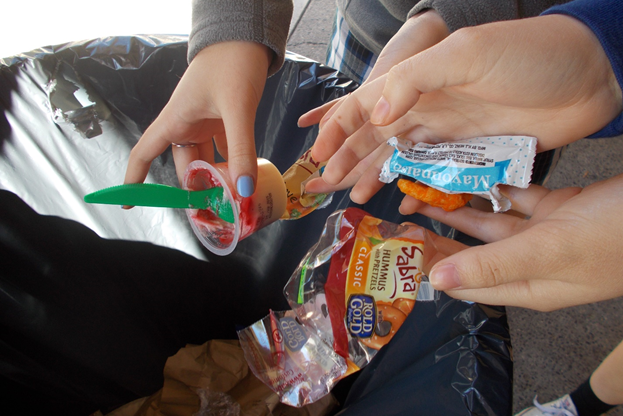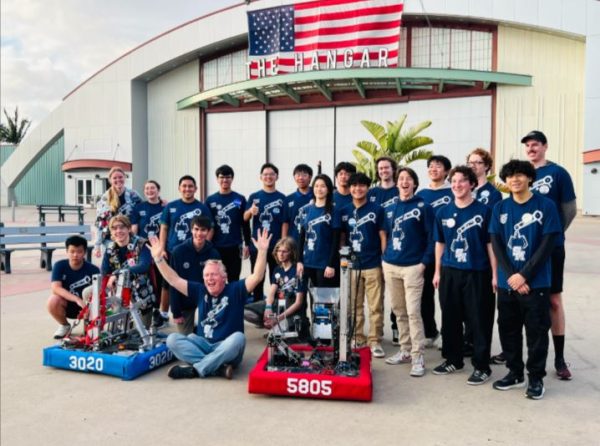Litter bugs
Trash covers the lunch tables like a thin blanket and empty bottles and paper bags flood walkways. The bell has just rung, signaling that lunch has ended, and it is time to return to class.
Senior Su Jin Son takes a moment to collect the garbage around her and throws away what remains of her lunch. However, hundreds of others around her leave their leftovers on the ground, unaware of the serious offense they are committing: littering.
The way we care for the world around us is a form of expression that doesn’t require words. Littering, especially at the place where we spend most of our time, demonstrates how much (or little) we value our environment.
Son is the president of the Environmental Club, which strives to care for and clean up the SMCHS campus.
“Littering affects how other people in Orange County view our school,” Son said. “Even a little action — like leaving trash on the ground — exhibits poor character traits. We don’t want other people in our community to think this is what our students are like, especially eighth graders who are considering going here.”
Leaving a plastic bottle or bag on the ground may not seem like a big deal, but our choices add up over time. It might be difficult to train yourself to automatically throw away trash, but after a while, the conscious choices we make become routine.
“When you learn good habits now, it sticks with you, but when you grow up, it’s harder to learn because you are so used to mirroring what you did in childhood,” Son said. “Using good habits also has an effect on peers, because it causes them to want to follow your good values as well.”
Cleaning up after ourselves serves to keep our campus beautiful. Since we see more and more trash piling up, a little nudge in a cleaner direction is exactly what we need to help our school.
“Usually if we see students leaving trash on the ground, we ask them if they can go back and pick it up, which seems more effective than giving them an actual detention,” said campus supervisor Alicia Sayles. “It just reminds students that they need to take responsibility for the school. It’s important to enforce the rules. If I didn’t, I just think the general beauty of the campus would deteriorate.”
The litterers themselves aren’t the only ones responsible for this persistent littering problem. As students of SMCHS, we are all responsible for taking care of the environment.
“I think there is a lack of personal responsibility from students,” Sayles said. “I think they need to take more pride in the school and what’s going on at school. Everyone needs to have some leadership in solving this problem. Each person needs to be respectful and prideful of their school, so that they have the drive to take care of their campus.”
Eliminating the littering problem isn’t about one massive change, but a series of small steps. Each of us has the capacity to improve our school environment with the daily choices we make.
“You need to start somewhere to make a change at school,” Son said. “Repeating little things can improve our habits, as well as the way we appreciate going to this great school. If each student makes a resolution, like picking up three pieces of trash per day, then it would make a huge difference for our campus.”
Son is dealing with this problem now by taking action through her service to the environment.
“We have a service project with the Green Machine Club,” Son said. “After school, we collect the empty bottles thrown away in the trash cans and donate the money to nonprofit organizations.”
Some good can come out of throwing trash away. It may not seem like much now, but these recyclables add up. The more we throw away our trash, the more potential there is for a “greener” and cleaner SMCHS.






